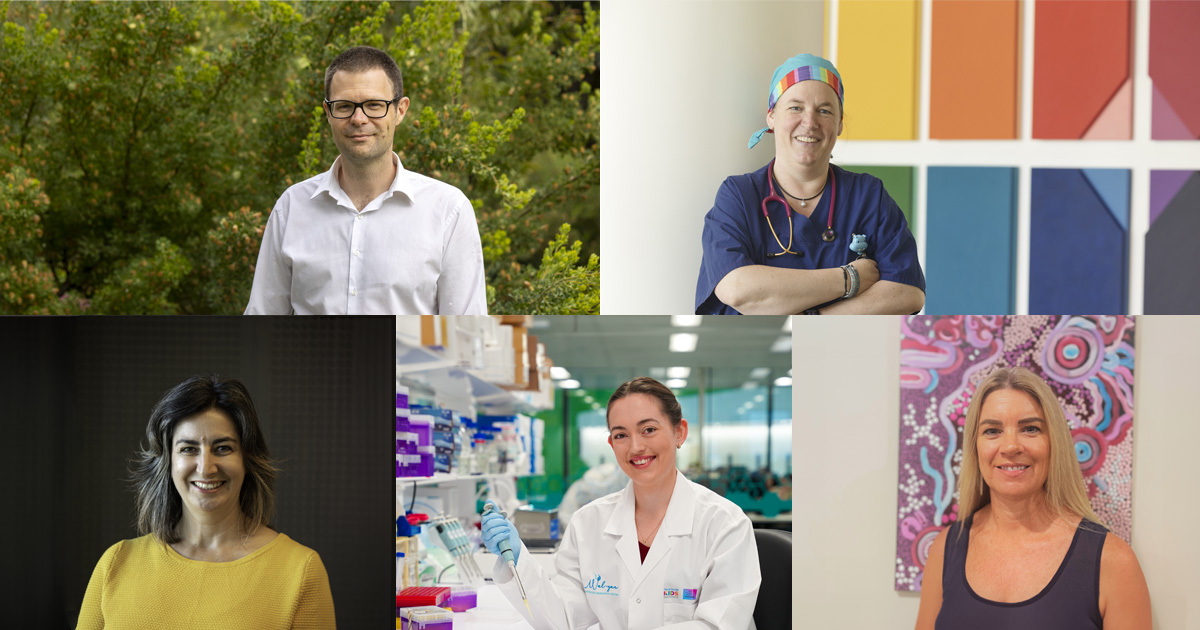Search
Research
Burden of skin disease in two remote primary healthcare centres in northern and central AustraliaSkin infections are an under-appreciated and dominant reason for presentation to primary healthcare centres in these indigenous communities
Research
Lessons learned from a hospital-wide review of blood stream infections for paediatric central line-associated blood stream infection preventionHealth care-associated bacteraemia has a significant impact on child health, exceeding the number of community-acquired bacteraemia at our hospital
Research
Australian Group on Antimicrobial Research surveillance outcome programs - bloodstream infections and antimicrobial resistance patterns from patients less than 18 years of ageFrom 1 January 2020 to 31 December 2021, thirty-eight institutions across Australia submitted data to the Australian Group on Antimicrobial Resistance (AGAR) from patients aged < 18 years (AGAR-Kids). Over the two years, 1,679 isolates were reported from 1,611 patients. This AGAR-Kids report aims to describe the population of children and adolescents with bacteraemia reported to AGAR and the proportion of resistant isolates.
Research
Dedicated paediatric Outpatient Parenteral Antimicrobial Therapy medical support: a pre-post observational studyWe examined the impact of introducing a dedicated team to OPAT, to define the role of increased medical oversight in improving patient outcomes in this cohort.
Research
Evaluation of Pediatric HIV Postexposure Prophylaxis Guideline Following Child Sexual Assault in Western AustraliaHIV postexposure prophylaxis (PEP) following child sexual assault (CSA) is recommended in select cases. High rates of poor adherence to PEP are reported. We evaluated adherence to the recommended management of children following CSA at the tertiary pediatric facility in Western Australia and compared our approach with international guidelines.

News & Events
The Kids researchers named as finalists in 2023 Premier’s Science AwardsFive The Kids Research Institute Australia researchers working across diverse and highly impactful areas of child health research have been named as finalists for the 2023 Premier’s Science Awards.
Research
Spatial codistribution of HIV, tuberculosis and malaria in EthiopiaHIV, tuberculosis (TB) and malaria are the three most important infectious diseases in Ethiopia, and sub-Saharan Africa. Understanding the spatial codistribution of these diseases is critical for designing geographically targeted and integrated disease control programmes. This study investigated the spatial overlap and drivers of HIV, TB and malaria prevalence in Ethiopia.
Research
Infectious complications and optimising infection prevention for children with cochlear implantsTo describe the clinical epidemiology of children receiving cochlear implants, as well as the management and outcomes of cochlear implant infections and adherence to infection prevention measures.
Research
The role of children in transmission of SARS-CoV-2 variants of concern within households: an updated systematic review and meta-analysis, as at 30 June 2022Meta-analyses and single-site studies have established that children are less infectious than adults within a household when positive for ancestral SARS-CoV-2. In addition, children appear less susceptible to infection when exposed to ancestral SARS-CoV-2 within a household. The emergence of SARS-CoV-2 variants of concern (VOC) has been associated with an increased number of paediatric infections worldwide.
Research
Optimisation of the sampling method for skin microbiome studies in healthy children: a pilot cohort studyRecent interest in the diverse ecosystem of bacteria, fungi and viruses that make up the skin microbiome has led to numerous studies investigating the skin microbiome in healthy skin and in dermatological conditions. However, skin microbiome analysis is challenging due to relatively low numbers of skin microorganisms compared to mucosal sites, such as the respiratory or gastrointestinal tracts. Microbiome results are heavily influenced by sampling methods.
